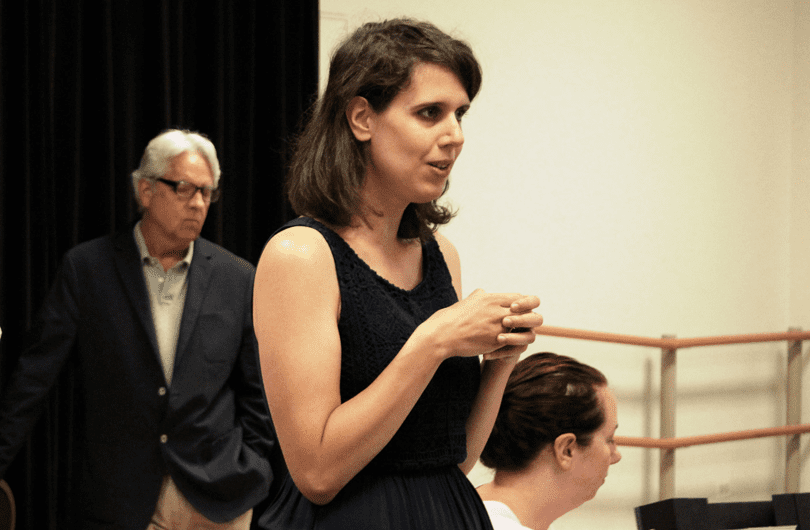Marti Lyons
Director, The City of Conversation
One of the things I think is so successful about the TV show Mad Men is that it’s about the present time but it’s through the lens of a period. So people can look at it and say, “That’s different. That’s not us.” But when they watch it and relate to it I think they actually find themselves more in it because of that distance.
So when BJ [Jones, Artistic Director] sent me this play I was thrilled. I immediately thought the piece was so relevant but also gave us this distance. It gave us this entry into a period of extreme glamor in Georgetown – the 1970s, and then travels in time beyond that moment to play out American history in the context of this room and with these characters. While it’s clear that what’s happening in each of these moments in history in the play is not exactly what’s happening now, there are so many parallels, and precursors.
There is a lot of prophecy in Hester’s language that resonates with where we are now, moving into this election, even more, or just differently, then the play would have a year ago. This production feels particularly well primed to be in conversation with our current circumstance without being didactic or commenting in a literal way on current events. And I think that that’s actually the best kind of theatre.
One of the things that Tony [Giardina, playwright] talks about is where the play came from. In Georgetown starting in the 1930s, there was this group of socialites who were very influential in politics by throwing dinner parties. Senators and diplomats, as well as journalists, would come to these parties and they would have conversations, often across the aisle – a kind of “cocktail diplomacy.” It was possible for there to be conversations between Republicans and Democrats in a way that doesn’t exist anymore. And the role of women within the context of this socializing was key, because it was the way that women could be influential in that period. So someone like Hester (of which there are several different historical examples) could throw a party, have a conversation with possibly even a president, and then policies might be influenced and swayed by this elite liberal class that was living in Georgetown.
Amidst all that, this play is really about family and conviction, and what happens when you’re in a situation that you have to choose one of these things over the other. Hester has this decision to make— she’s finally in a position in which she can influence politics in a way that is direct, not through cocktails. And you see how excited and invigorated she is by actually being able to be a player at the table when we move into the 1980s. But if she takes this action which is hugely important and politically significant, she would basically have to sacrifice part of her family. She is pitted between these two things. At the center of it is family, and no matter what you can relate to in terms of history or politics or narrative of the piece, you can relate to this.
I have to thank Northlight for doing this play because I think the Northlight audience is going to be an incredible recipient and partner in this production. One of the things I love about this play is how respectful it is to each side of the political dialogue, the discourse is represented so thoughtfully. In our current political climate where it can seem impossible for people to speak to each other across the political aisle, I hope this play at Northlight will truly be able to spark conversation across our theatrical aisles and I cannot wait until we can all discuss together.

